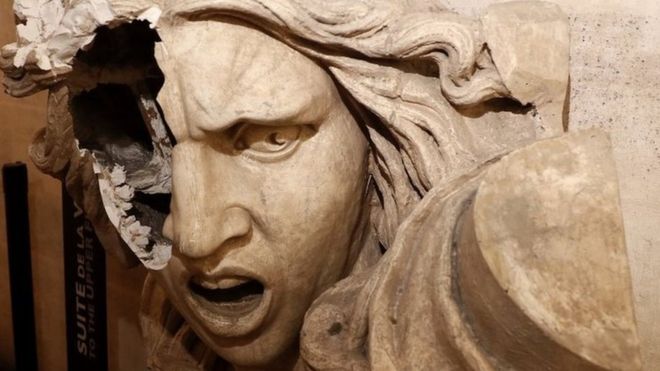A government spokesperson said a state of emergency could be imposed to tackle the unrest.
Protests over fuel tax have grown into general anger at higher living costs.
Police said another person died in the protests bringing to three the number of fatalities since the demonstrations started more than two weeks ago.
Saturday's protests centred on Paris, where some demonstrators have remained peaceful, but others clashed with police and scaled the Arc de Triomphe.
More than 100 people were injured in the capital, including 23 members of the security forces.
Police say more than 400 people were arrested.
Mr Macron returned from the G20 summit in Argentina on Sunday morning and went straight to the Arc de Triomphe to assess the damage.
He is meeting the prime minister, interior minister and top security service officials at the presidential palace.
Government spokesman Benjamin Griveaux told Europe 1 radio that a state-of-emergency declaration was a possible option. "We have to think about the measures that can be taken so that these incidents don't happen again," he said.
Who are the protesters?
The protesters are known as the "gilets jaunes" (yellow vests), because they have taken to the streets wearing the high-visibility clothing that is required to be carried in every vehicle by French law.
Their core complaint is a hike in diesel taxes. President Macron says his motivation for the increase is environmental, but protesters call him out of touch - particularly with non-city dwellers who rely on their cars.
The protest movement has no identifiable leadership and has gained momentum via social media, encompassing a whole range of participants from the anarchist far left to the nationalist far right, and plenty of moderates in between.
Nearly 300,000 people took part in the first country-wide demonstration, on 17 November.
Source: bbc





